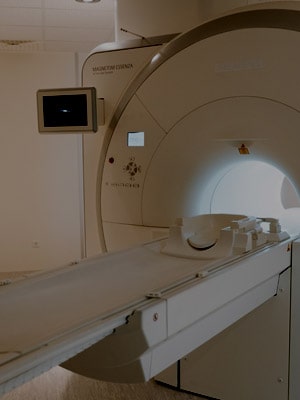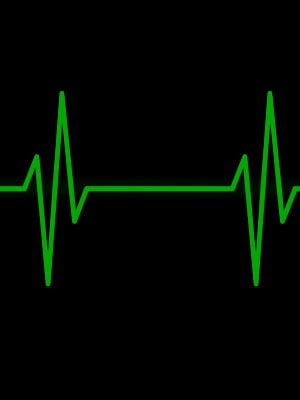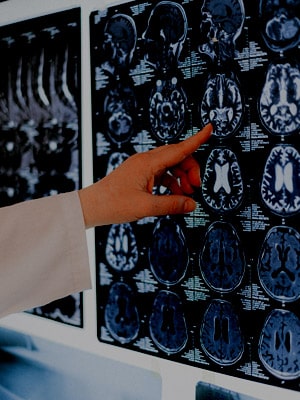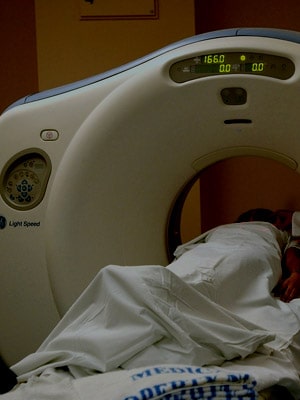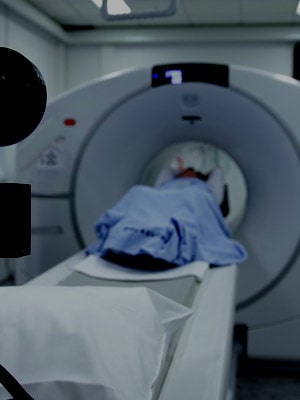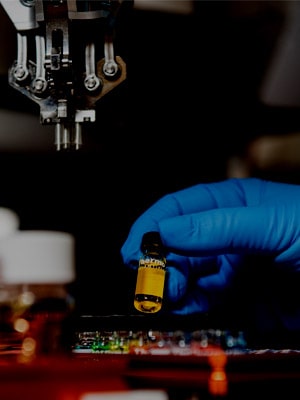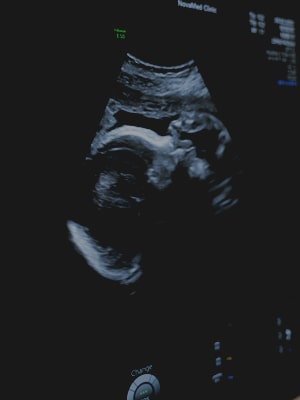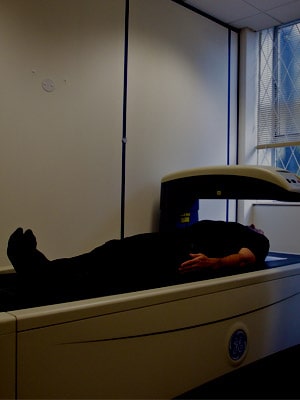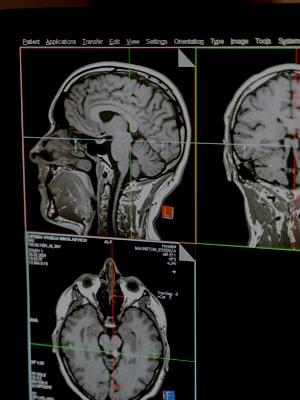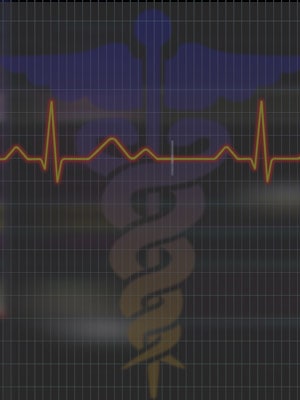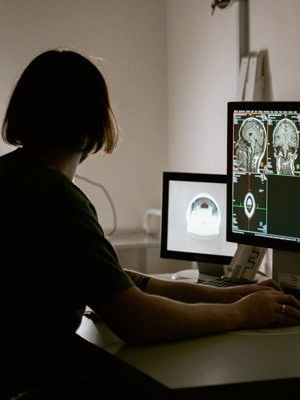MRI is the most sophisticated imaging modality that has revolutionized modern radiology and is often considered to be the best “one-stop shop” radiological scan for many applications. Our research-grade The GE Signa HDxT, is one of its kind in a private clinic in Patna, delivering world-class image quality with new quantitative capabilities to enable the translation of what was considered research into the clinical world.
WHAT IS ONCOLOGY?
ONCO Radiology or Clinical Radiology is a specialized branch of medicine that uses state-of-the-art equipment and a range of techniques to capture images of the inside of the body. The different types of techniques used in clinical radiology include X-rays (plain radiology), MRI (magnetic resonance imaging) scans, Ultrasound (sonograms), CT scans (computed tomography), Fluoroscopy, Nuclear scans, and Interventional radiology.
HOW DOES ONCOLOGY (RADIATION THERAPY) WORKS?
Radiation therapy is the use of high-energy radiation to damage cancer cells’ DNA and destroys their ability to divide and grow. It may be delivered using machines called accelerators or via radioactive sources placed inside the patient on a temporary or permanent basis. Because radiation therapy can damage normal cells, medical imaging—such as x-ray, computed tomography (CT), or magnetic resonance imaging (MRI)—may be used to help precisely target the radiation dose to cancer. Radiation
Frequently Asked Questions
Some patients are concerned about the safety of radiation therapy. Radiation has been used successfully to treat patients for more than 100 years. In that time, many advances have been made to ensure that radiation therapy is safe and effective.
Before you begin receiving radiation therapy, your radiation oncology team will carefully tailor your plan to make sure that you receive safe and accurate treatment. Treatment will be carefully planned to focus on cancer while avoiding healthy organs in the area. Throughout your treatment, members of your team check and re-check your plan. Special computers are also used to monitor and double-check the treatment machines to make sure that the proper treatment is given. If you undergo external beam radiation therapy, you will not be radioactive after treatment ends because the radiation does not stay in your body. However, if you undergo brachytherapy, tiny radioactive sources will be implanted inside your body, in the tumor, or in the tissue surrounding the tumor, either temporarily or permanently. Your radiation oncologist will explain any special precautions that you or your family and friends may need to take.
Some patients worry that radiation therapy will cause cancer years after treatment. While this is a very small risk, it is most important to cure cancer now. Talk with your radiation oncologist or radiation oncology nurse about any fears you may have. Like all therapies, radiation can cause side effects. See page 17 for more information.
Once the diagnosis has been made, you will probably talk with your primary care physician along with several cancer specialists, such as a surgeon, a medical oncologist and a radiation oncologist, to discuss your treatment choices. These specialists will work together to help recommend the best treatment for you. In some cases, your cancer will need to be treated by using more than one type of treatment.
People who receive radiation therapy may experience skin dryness, itching, blistering, or peeling. These usually resolve a few weeks after treatment has finished. Another common side effect is fatigue, a feeling of exhaustion that does not improve with rest. Your level of fatigue may depend on whether you are undergoing other treatments, such as chemotherapy. Although most side effects go away after radiation therapy has finished, some long-term effects may occur.
As radiation therapy is localized to an area of the body, you may only experience side effects in this area. Your radiation oncologist and treatment team will discuss the type of side effects you may experience, however it is important to let your treating team know if any effects you notice or that are making you uncomfortable.
Most side effects are temporary and can be treated or managed.
At Maxlife Diagnostic, we are always here to help our patients find ways to manage any side effects that they experience.

